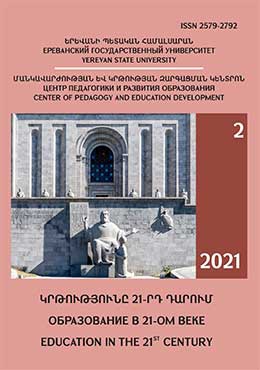THE ROLE OF ADULTS’ PERSEPTION ABOUT LEARNING ABILITY IN PARTICIPATE IN EDUCATIONAL PROGRAMS AND TRAINING COURSES
DOI:
https://doi.org/10.46991/educ-21st-century.v2i6.11083Keywords:
Keywords: Adult education, learning ability, learning motivation, educational programs and training courses, adults’ perception, self-efficacy theory, force field theory.Abstract
One of the factors that has a major effect on motivating a person is the person's perception of his abilities and capabilities or the so-called self-efficacy. According to theories of self-efficacy and the force field, adults often feel insecure and uncomfortable when they make direct contact with the world today because of dramatic changes and the possibility of not being able to adapt to them. In such a situation, their self-image is shaken and they lose their self-confidence. Insecurity and feelings of inadequacy cause them to lose their motivation and desire to learn. Unfortunately, most adults have a negative attitude towards adults' ability to learn. While human beings at any age have the ability to learn. Adults, like other human beings, have the ability to learn and use new technologies.
Purpose of the article: To study the peculiarities of adult learning, especially the barriers to participation in educational programs, the impact of adult's perception of personal potential and learning ability on educational motivation and aspiration.
The scientific novelty of the research: The study comprehensively analyzes the issue of adult education in Iran. The article substantiates the research provision that adults' perception of their own abilities has a significant impact on the learning process, and this plays a decisive role in adults’ learning motivations and the involving in educational programs and training courses.
References
Հաքիմզադեհ Ռ. և ուրիշներ, Անգրաճանաչների կողմից Իրանի գրագիտության դասըն-թացներին չընդառաջելու պատճառների ուսումնասիրություն, Մշակութային ճարտարագիտու-թյուն, 9-րդ տարի, , 84-րդ համար, Թեհրան, 2015, էջ 65:
Սիասի Ա., Անձի տեսություններ, հոգեբանության դպրոցներ, Թեհրանի համալսարանի հրատարակչություն, 14-րդ հրատարակություն, Թեհրան, 2011, էջ 216:
Վանդեր Զանդեն Վ. Ջ., Տարիքային հոգեբանություն, թարգմանիչ՝ Գանջի Հ., «Սավալան» հրատ., 12-րդ հրատարակություն, Թեհրան, 2014, էջ 280:
Bandura, A. (1997). Self – efficacy: The exercise of control. New York: W. H. Freeman & Company, pp. 1-591.
Boudard, E. & K. Rubenson (2003). “Revisiting Major Determinants of Participation in Adult Education with a Direct Measure of Literacy Skills”. International Journal of Educational Research, 39 (3), pp. 265-281.
Howley, I., Adamson, D., Dyke, G., Mayfield, E., Beuth, J., & Rosé, C. P. (2012). Group composition and intelligent dialogue tutors for impacting students’ academic self-efficacy. In Intelligent Tutoring Systems. Springer Berlin Heidelberg, pp. 551-556.
Larson, A. & M. Milana (2006). Barriers towards Participation in Adult Education and Training.Psychology, 52(1), pp. 1-26.
Scanlan, C.L. (1986). Deterrents to Participation: An Adult Education Dilemma. Information Series No. 308, pp. 1-57.
Vasile, C., Marhan, A. M., Singer, F. M., &Stoicescu, D. (2011). Academic self-efficacy and cognitive load in students. Procedia-Social and Behavioral Sciences, 12, pp.478-482.
Downloads
Published
How to Cite
Issue
Section
License

This work is licensed under a Creative Commons Attribution-NonCommercial 4.0 International License.

